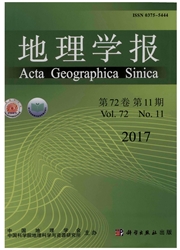

 中文摘要:
中文摘要:
在空间与旅游地空间的相关研究中,社区居民及其日常生活所扮演的角色未得到充分的重视。而本文试图转向微观层面,关注空间演化中居民与日常生活的力量。研究以世界文化遗产"开平碉楼与村落"核心区马降龙村为例,运用观察法与访谈法,探索由旅游发展所推动的旅游社区空间再生产的现象与特征。基于列斐伏尔的"空间三元论"与德塞图的"日常生活实践"理论,讨论在空间再生产的过程中,居民如何通过日常生活,对抗政府与景区管理主体构想的空间表征,体现具有反抗性的表征空间。研究发现,在日常生活中,反抗性的表征空间表现出嵌入、抵制、进攻性抵制、反噬、再生等形式。现阶段,低度开发水平下居民与政府及景区管理主体的对抗达到一种微妙的平衡状态。长期看来景区组织与居民角色的特性,以及对土地的掌控保障了反抗潜力的延续。而旅游社区的空间秩序最终将在所有旅游利益相关者的协商中形成。旅游发展中居民扮演的角色影响其协商能力,造成不同的行动机制与意义。旅游社区空间活力最终在多主体、多目标的空间生产过程中激发,这一过程始终展现出日常生活的创造力。
 英文摘要:
英文摘要:
Through a micro-level analysis, the paper investigates the power of residents and their daily life during the process of community evolution in tourism destinations, which are overlooked in the previous studies. The paper draws on comprehensive observation and in- depth interviews in exploring the phenomenon and characteristics of the space reproduction of tourism community driven by tourism development. The case of Maxianglong Village is presented as an example, which is located in the core area of the world cultural heritage "Kaiping Diaolou and Villages" in South China. Based on both Lefebvre's theory of "spatial triad" and De Certeau's theory of "practice of everyday life", this paper focuses on the resistance process of the residents against the representation of space which is proposed by both the local government and the tourist area management agents. Residents in Maxianglong Village embody this process through their everyday life. Results show that the space of representation displays in different forms including insertion, resistance, aggressive resistance, reverse invasion and revitalization during residents' daily life. In the current stage of the presented case, a delicate balance is achieved in the confrontation of the residence against the government and the management agents under low-level tourism development. However, the potential of resistance exists due to the characteristics of residents' role, management organizations and land ownership through a long-term perspective. Spatial orders of tourism community are determined by the negotiation among all tourist stakeholders. Negotiation ability, which is affected by the role of the residents, results in different mechanisms and meanings. Vitality of tourism community is evoked by multiple agents and multiple targets during the space reproduction process, which demonstrates the creativity of everyday life.
 关于孙九霞:
关于孙九霞:
 同期刊论文项目
同期刊论文项目
 同项目期刊论文
同项目期刊论文
 期刊信息
期刊信息
